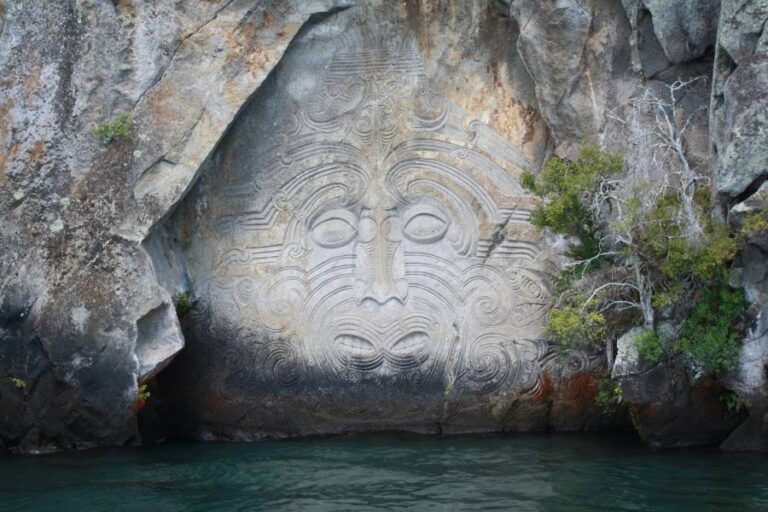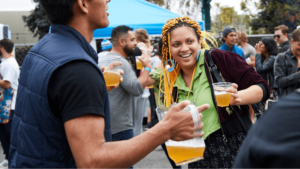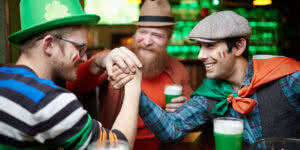February 6 marks Waitangi Day, the national day of New Zealand. The history goes back to 1840 when Maori chiefs from the North Island signed the Treaty of Waitangi – Te Tiriti o Waitangi in Maori – with Captain William Hobson, representing the British Crown. This treaty established the British presence in New Zealand while promising the Maoris full ownership of their lands.
Celebration of the day began in 1934, but it wasn’t made a public holiday until 1974. Since then, all kinds of different commemorative cultural events have become popular, with the New Zealand government even offering grants to organisers who want to hold their own event. The public holiday gives New Zealanders a chance to gather with friends, family, and their communities to mark the significance of the historic occasion. We’ve put together this guide to give you a few ideas for how to celebrate Waitangi Day with your community.
Hold a breakfast event
Dawn services are a staple on Waitangi Day, so what better way to follow the commemoration than with breakfast? Since 2018, it has even become a tradition for the Prime Minister to help serve the traditional hangi barbecue breakfast. Selling tickets or holding a raffle, in addition to your morning feast, is a great way to raise money for a charitable cause.
Hold a market
Community markets combine the spirit of the occasion with local engagement; stallholders can offer wares specifically themed for Waitangi Day. Markets are held annually at the Treaty Ground for the Waitangi Day festival, so take inspiration from the official events and host your own.
Markets can be themed or feature a headline exhibition to boost engagement. The Wairarapa A&P Society, for example, concludes its three-day automobile festival ‘Wheels at Wairapara’ on Waitangi Day, merging two celebrations to benefit both.
Dive into local culture
There’s no better time to showcase the vibrant culture of New Zealand than Waitangi Day. Allow your attendees to experience the country’s history and its inspiring indigenous Maori culture. Great event ideas for New Zealand’s national day include:
A community art display – Showcase local Maori artists or explore the theme of the country’s history and identity. Take inspiration from the Te Uru Waitakere Contemporary Gallery of West Auckland for how you might promote your event.
Walking tour – Walking tours of historical or picturesque areas are a fantastic way to immerse your attendees in the spirit of the national day. Spice things up with an exciting theme, like the Spooky Stories from Waikato tour organised by the Waikato Museum, or the tour of scandals run by Heritage New Zealand Pouhere Taonga.
Historical theatre – Re-enactment is an impactful way to expose attendees to the theatre. Collaborate with a local theatre troupe or even recruit attendees’ children for a performance of the original signing of the treaty.
Maori dance performance – What better way to celebrate New Zealand’s national day than a demonstration of its most famous cultural display? Performed by Maoris, a haka can be one element of a larger event or the centrepiece of a performance.
Head to the beach
Held at the height of summer, Waitangi Day is the perfect occasion to get out to the beach and enjoy the summer sun. Use this to your advantage when considering how to celebrate the day by finding a beachside location for your festivals, markets, and live music events. Beach clean-ups are another way to bring the community together – and take care of the environment.
Host a workshop
One of the best ways to better understand a culture is to learn about its traditional crafts. Each object tells a story, and the story of Waitangi Day is of different people coming together. A workshop gives attendees a memorable experience and a souvenir of their efforts. It also works for kids – just adjust the content appropriately. Engage a genuine custodian of the culture – i.e., a member of the Maori community – to avoid any potential cultural appropriation. Some traditional Maori crafts include:
Maori cooking – Involve guests in laying a hangi. The traditional Maori barbecue involves digging a pit in the ground, heating stones in the pit with a large fire, placing baskets of food on top of the stones, and covering everything with earth for several hours. Once cooked, the hangi is uncovered or lifted, and the feast can begin.
Maori wood carving – Whakairo is the art of carving wood, bone, or stone into tools or decorations, often for buildings and canoes. Using similar swirling designs as in traditional Maori tattooing, whakairo masters can produce incredible works of art. If you’re aiming your workshop at children, substitute harder materials with clay.
Maori tattooing – Traditional Maori tattooing – called Ta Moko – is an instantly recognisable symbol of Maori culture. A class on the design and meaning of traditional patterns has broad appeal, regardless of attendees’ desire for ink.
Maori language class – As one of the official languages of New Zealand, Maori is widely spoken. Introduce attendees to the culture through stories, songs, or performances that help to teach the language.
Maori cloak making – The Korowai feather cloak is a powerful symbol of Maori culture, handwoven for use on special occasions. Teach kids and adults how to craft this culturally significant garment and let them delve into Maori culture.
Hold a community tree-planting event
Public holidays are a fantastic opportunity to spend time in nature and community events like tree planting help us all to give back a little to the environment. Keep the spirit of Waitangi Day in mind and ensure that you have permission from the owners of the land ahead of time. To make things easier, you can ask attendees to bring their own planting equipment, including spades, trowels, and watering cans. All you’ll need to provide are the saplings.
Host your Waitangi Day community event
If you were wondering how to celebrate Waitangi Day, you should now be inspired to create your own event. Once you’ve chosen the type of event for celebrating New Zealand’s national day, discover the tools Eventbrite has to help plan and promote it. Why not get started today?






